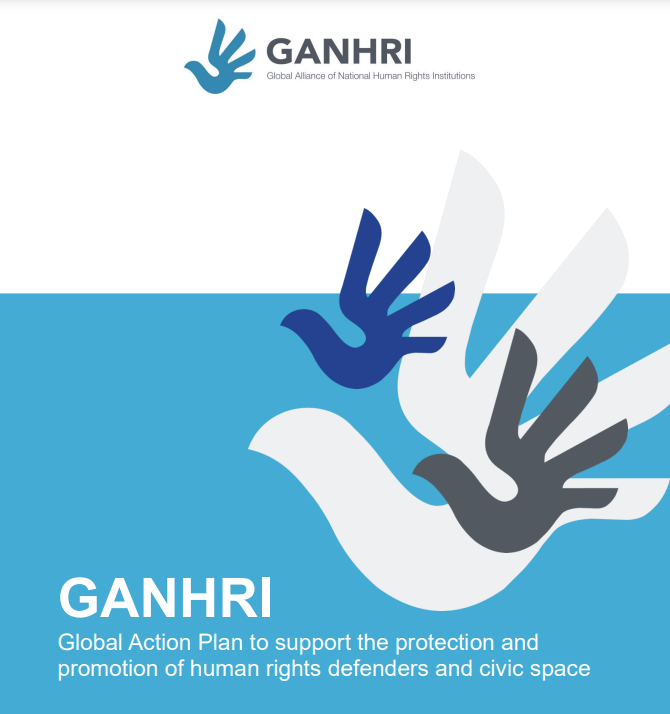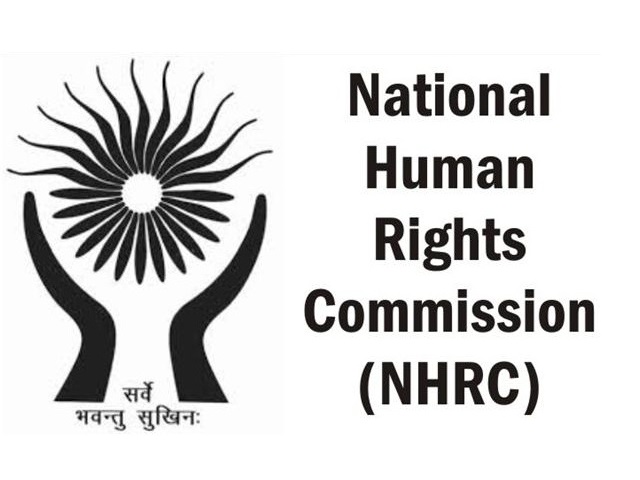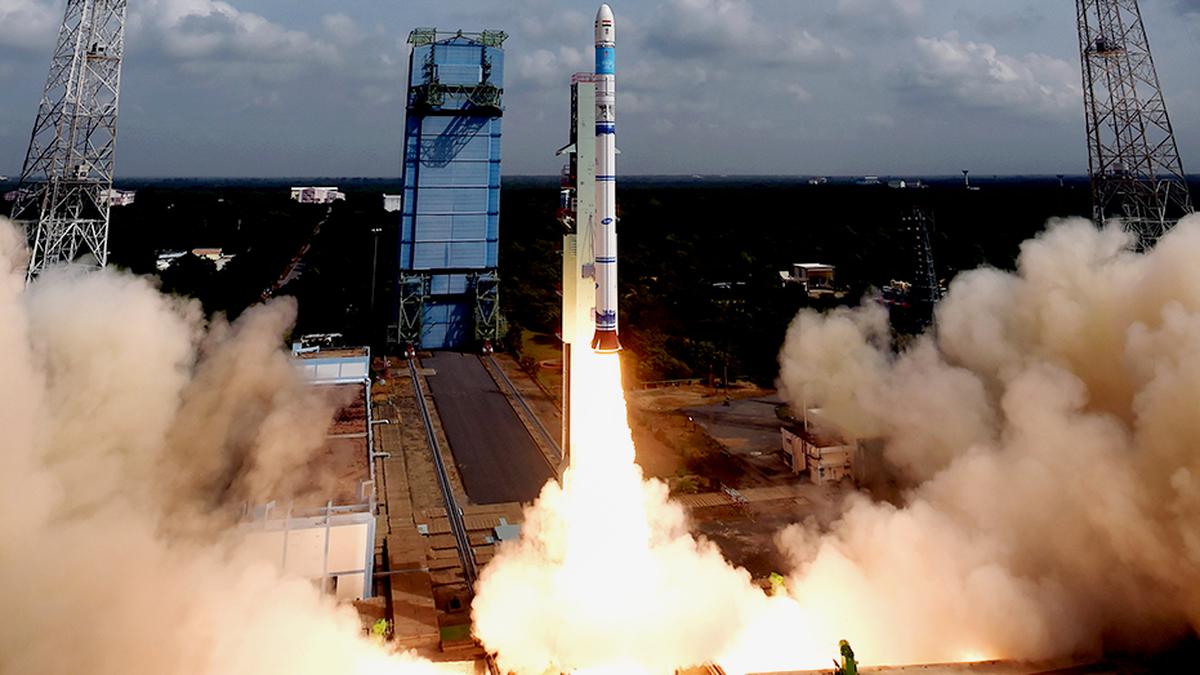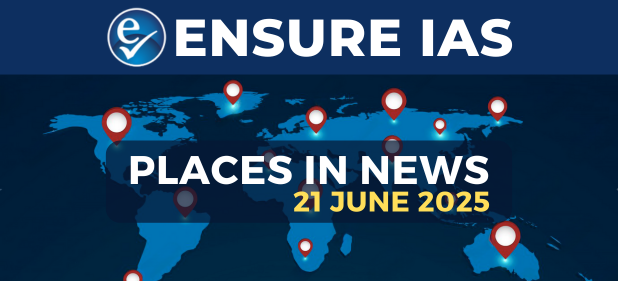- Courses
- GS Full Course 1 Year
- GS Full Course 2 Year
- GS Full Course 3 Year
- GS Full Course Till Selection
- Answer Alpha: Mains 2025 Mentorship
- MEP (Mains Enrichment Programme) Data, Facts
- Essay Target – 150+ Marks
- Online Program
- GS Recorded Course
- Polity
- Geography
- Economy
- Ancient, Medieval and Art & Culture AMAC
- Modern India, Post Independence & World History
- Environment
- Governance
- Science & Technology
- International Relations and Internal Security
- Disaster Management
- Ethics
- NCERT Current Affairs
- Indian Society and Social Issue
- NCERT- Science and Technology
- NCERT - Geography
- NCERT - Ancient History
- NCERT- World History
- NCERT Modern History
- CSAT
- 5 LAYERED ARJUNA Mentorship
- Public Administration Optional
- ABOUT US
- OUR TOPPERS
- TEST SERIES
- FREE STUDY MATERIAL
- VIDEOS
- CONTACT US
GLOBAL ALLIANCE OF NATIONAL HUMAN RIGHTS INSTITUTIONS (GANHRI)
GLOBAL ALLIANCE OF NATIONAL HUMAN RIGHTS INSTITUTIONS (GANHRI)


Latest Context
The National Human Rights Commission (NHRC)'s accreditation has been postponed for the second time in ten years due to concerns raised by the Global Alliance of National Human Rights Institutions (GANHRI), including concerns about political interference in appointments processes.
- The GANHRI had deferred NHRC's application for accreditation in 2016, but in 2017 it had approved it and granted ‘A’ status, marking the first time since NHRC was founded in 1993.
- NHRC won't be able to represent India in the UN Human Rights Council without the accreditation.
Key Points of GANHRI
- The United Nations recognises GANHRI as a reliable partner.
- The International Coordinating Committee of National Institutions for the Promotion and Protection of Human Rights (ICC) was created in 1993.
- The Global Alliance of National Human Rights Institutions (GANHRI), a member-based network organisation that brings together NHRIs from all around the world, has been in existence since 2016.
- Members: 120 members including India.
- Secretariat: Geneva, Switzerland.
What are the causes of the deferment?
- The GANHRI included reasons like:
- Lack of diversity in staff and leadership.
- Insufficient action to protect marginalized groups.
- Involving the police in probes into human rights violations.
- Poor cooperation with civil society.
- According to the GANHRI, the NHRC has often failed to fulfil its purpose, especially with regard to defending the rights of people of marginalized communities in society, religious minorities, and human rights defenders.
- The United Nations' (U.N.) standards on the status of national institutions, known as the "Paris Principles," are violated by the NHCR's lack of independence, pluralism, diversity, and accountability.
What are the Paris Principles and ‘A’ Status?
- The UN approved the Paris Principles in 1993. The General Assembly establishes the global benchmark that National Human Rights Institutions (NHRI) can be accredited against.
- In accordance with the Paris Principles, NHRIs must adhere to six major criteria. They are:
- Mandate and competence.
- Autonomy from government.
- Independence guaranteed by a statute or Constitution.
- Pluralism.
- Adequate resources.
- Adequate powers of investigation.
- A total of 16 human rights agencies, four from each of the four regions (Americas, Europe, Africa, and Asia-Pacific), make up the GANHRI, which has received the highest rating (“A”) for following the Paris Principles.
- The 'A' rating also enables them to participate in the GANHRI and UN's work on human rights concerns.
- After a delay, the NHRC received its "A" rating in 1999 and retained it in 2006, 2011, and 2017. Because of various issues with the NHRC's personnel and appointments, the GANHRI had to delay it. Justice Arun Mishra, a former judge on the Supreme Court, is in charge of the NHRC.

Facts about NHRC
- According to the Protection of Human Rights Act, 1993, which was later amended in 2006, the NHRC of India is an independent statutory body that was founded on October 12th, 1993.
- It serves as the watchdog for human rights in India, which are those rights to life, liberty, equality, and individual dignity protected by the Indian Constitution or enshrined in international accords and upholdable in Indian courts.
- It was created in accordance with the Paris Principles, which were ratified by on December 20, 1993. The Paris Principles were approved in Paris in October 1991 for the promotion and protection of human rights.
Composition of NHRC:
- Members: A chairperson, five full-time Members, and seven deemed Members make up this multi-member body. A former Supreme Court judge or the Chief Justice of India may hold the position of chairman.
- Appointment: On the advice of a six-member committee that includes the Prime Minister as its chairman, the Speaker of the Lok Sabha, the Deputy Chairman of the Rajya Sabha, leaders of the Opposition in both Houses of Parliament, and the Union Home Minister, the President appoints the chairperson and members.
- Tenure: The chairperson and members serve three-year terms or until they become 70 years of age, whichever comes first. In rare situations, the President has the authority to remove the chairman or any other member from their positions.
- Removal: Only allegations of proven misbehaviour or incapacity that are supported by a judge of the Supreme Court's investigation can lead to their removal.
- Divisions: In addition, the Commission includes five specialised divisions, including the Administration Division, the Law Division, the Investigation Division, the Policy Research & Programmes Division, and the Training Division.
Challenges Related to NHRC
- Mechanism of Investigation: The NHRC lacks a specific system for conducting inquiries. Instead, it depends on the concerned state and central governments to look into reported incidents of human rights violations.
- Time Limit for Complaints: Many complaints go unresolved because NHRC does not consider complaints filed more than a year after the incident.
- Decision Enforcing Power: The NHRC has no power to impose its decisions or guarantee compliance; it may only make recommendations.
- Underestimation of Funds: NHRC is occasionally seen as a retirement destination for political-affiliated judges and administrators. Additionally, its efficient operation is hampered by insufficient funds.
- Limitations of Powers: State human rights commissioners are not permitted to ask the national government for information. As a result, they have difficulties when looking into human rights violations committed by armed forces under national control. The NHRC's authority has been significantly curtailed when it comes to armed forces abuses of human rights.
Way Forward
- In order to ensure that the NHRC's recommendations and directives are successfully carried out, the government should take efforts to make its judgements enforceable. This will increase the effectiveness and transparency of NHRC's initiatives.
- Activists for human rights and members of the civil society should be included in the NHRC. Their knowledge and viewpoints will help to a more all-encompassing strategy for tackling human rights breaches by bringing new views.
- The NHRC must create a cadre of independent staff with pertinent human rights knowledge and experience. This will make it possible for the panel to carry out exhaustive investigations, gather information, and make well-informed recommendations.

Prelims:
Q. Other than the Fundamental Rights, which of the following parts of the Constitution of India reflect/reflects the principles and provisions of the Universal Declaration of Human Rights (1948)? (2020)
1.Preamble
2.Directive Principles of State Policy
3.Fundamental Duties
Select the correct answer using the code given below:
(a) 1 and 2 only
(b) 2 only
(c) 1 and 3 only
(d) 1, 2 and 3
Ans: (d)
Q. Consider the following: (2011)
1.Right to education
2.Right to equal access to public service
3.Right to food.
Which of the above is/are Human Right/Human Rights under “Universal Declaration of Human Rights”?
(a) 1 only
(b) 1 and 2 only
(c) 3 only
(d) 1, 2 and 3
Ans: (d)
Mains:
Q. Though the Human Rights Commissions have contributed immensely to the protection of human rights in India, yet they have failed to assert themselves against the mighty and powerful. Analysing their structural and practical limitations, suggest remedial measures. (2021)
Q. National Human Rights Commission (NHRC) in India can be most effective when its tasks are adequately supported by other mechanisms that ensure the accountability of a government. In light of the above observation assess the role of NHRC as an effective complement to the judiciary and other institutions, in promoting and protecting human rights standards. (2014)



